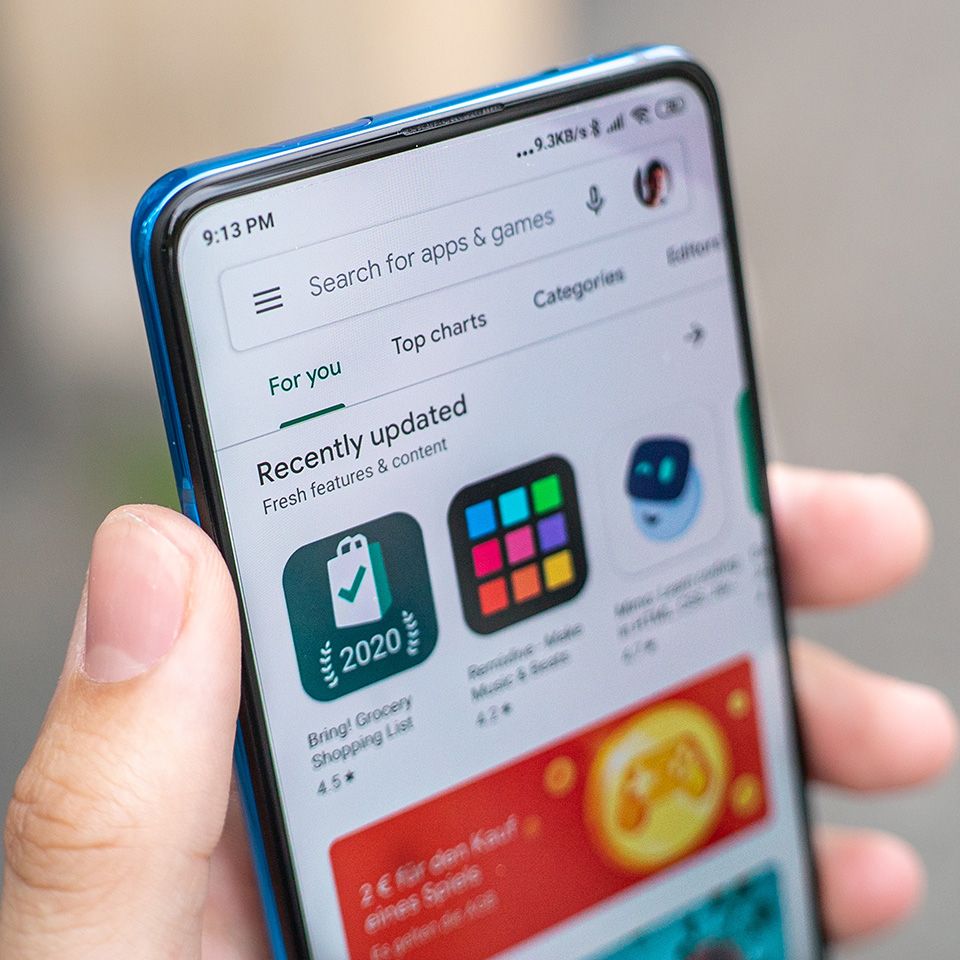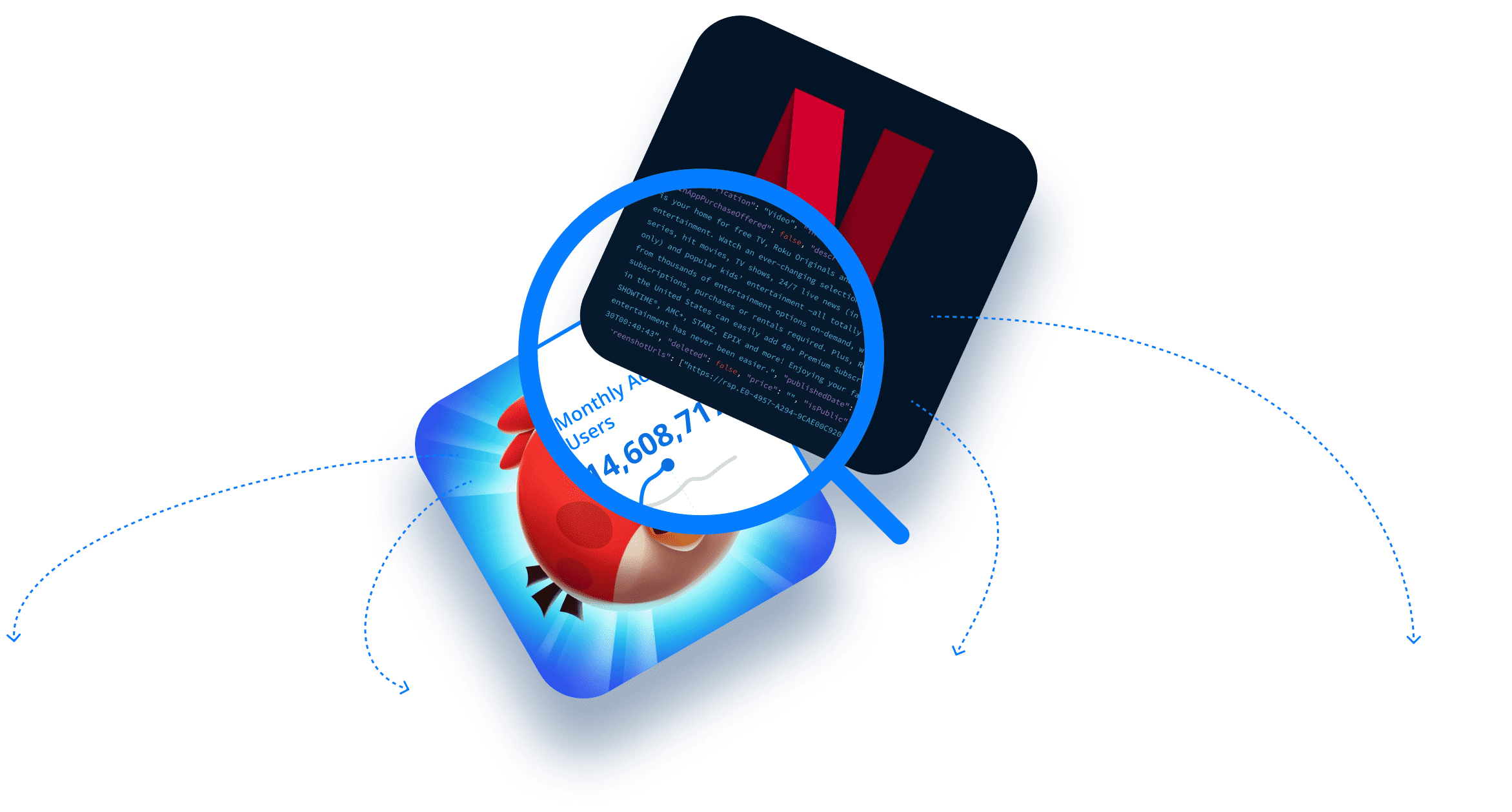Way back in 2008, in the earliest days of the mobile app economy, Android apps could only be found on Google Play. Today, however, there are a variety of third-party app stores for Android apps. We’ve ranked the most popular.
In this article, we provide brief descriptions of each of the top app stores for Android apps. While this is by no means an exhaustive exercise, it is nevertheless a great place to start for those researching the reach of Google’s mobile app and game footprint.
Moreover, because mobile app stores are subject to the same economic forces as all other businesses — that is, some will go defunct, others will grow in popularity, and new contenders are likely to emerge in the future — we thought it prudent to forgo comprehensiveness and stick to an investigation into the Android app standard-bearers as they exist in 2021.
Here’s what we cover (click the links below to jump to the corresponding sections):
- The Top App Stores for Android Apps 2021
- Google Play
- Amazon Appstore
- Huawei AppGallery
- Tencent MyApp
- APKMirror
- Samsung Galaxy Apps
- Sony Apps
- Aptoide
- F-Droid
- How to Get App Intelligence for Google Play and Third-Party Android App Stores
The Top App Stores for Android Apps 2021
1. Google Play — (Learn More)
At this point Google is a household name — like Disney, Coca Cola, or Cristiano Ronaldo. Indeed, as one of tech’s “Big Four,” the company is one of the most influential establishments on the planet, specializing in a variety of Internet-related services and products.
While they are perhaps best known for the world-class Google search engine, one of their most lucrative products is Google Play. Launched in 2008 as the “Android Market,” it was a direct response to the Apple App Store, which had been announced just a few months earlier. It serves as the official app store for the Android operating system, enabling users to browse and download mobile apps and games developed with the Android software development kit (SDK).
Anybody can submit an app to be published on Google Play. And, while Google has final say on which apps can and cannot be distributed on their platform, their publication standards are quite transparent and easy to maintain. For more on how to publish an app on Google Play, click here.
How does Google Play compare to the Apple App Store? Check out our side-by-side analysis.
2. Amazon Appstore — (Learn More)
Like Google, Amazon is also part of tech’s “Big Four.” Like Google, Amazon is also one of the most successful tech companies in history. And, while they ultimately come from different backgrounds, with Amazon known first and foremost as an e-commerce site, they once again converge on the mobile app economy.
In 2011, following the success of companies like Google and Apple in the digital entertainment and mobile application space, Amazon launched the Amazon Appstore. Serving Android- and Fire OS-enabled devices, such as the Kindle Fire tablet and a host of BlackBerry products, the Amazon Appstore now boasts a catalog of nearly half a million mobile apps and games.
As with Google, Amazon allows anybody who has developed an app to publish it to the Amazon Appstore. This can be done via the Amazon Apps Developer Portal.
To learn more about the Amazon Appstore, check out our breakdown on our store stats pages.
3. Tencent MyApp — (Learn More)
Founded in 1998, Tencent is one of China’s largest and most globally successful tech companies. Their subsidiaries — including Activision Blizzard, Epic Games, Glu Mobile, and numerous others — specialize in everything from Internet-related services and products, to gaming, entertainment, artificial intelligence (AI), and more.
So it should come as no surprise that Tencent MyApp is one of the most popular app stores on the market. Based on a reworked version of the company’s Tencent QQ, an instant messaging service and web portal, MyApp offers apps for Android, iOS, Symbian, and Windows devices. Today the platform boasts over 200 million active users and nearly 40,000 mobile games.
To learn more about Tencent MyApp, check out our breakdown on our store stats pages.
4. Huawei AppGallery
Many device manufacturers have also gotten in on the app store game. By building their own app distribution platforms, companies are better able to control user experience while simultaneously promoting their own branding standards.
Take Huawei, for instance. They first made their name selling telecommunications equipment and consumer electronics. However, in 2011, the Chinese multinational tech corporation took aim at Google Play when they launched Huawei AppGallery.
AppGallery is an app that comes pre-downloaded on Huawei devices and functions as a package manager and app distribution platform for Android and Huawei HarmonyOS apps. Currently, AppGallery boasts 420 million active users and can be found on 700 million Huawei devices.
5. APKMirror
Next up, we have APKMirror, an app repository that offers a wide range of Android apps and games. This includes beta apps which have not yet been released on Google Play, as well as older versions of apps that can no longer be downloaded.
As an app repository, APKMirror does not offer the traditional app store experience. It’s nevertheless a great tool for discovering unique, not-yet-released apps. It also comes with the added convenience of allowing users to roll back to previous versions of an app in case bugs or UI / UX changes have made the most recent release difficult to use.
6. Samsung Galaxy Store
Launched in September 2009, not long after Google Play and the Apple App Store, the Samsung Galaxy Store was among the first of these manufacturer-specific app stores. While it offers relatively few apps, it nevertheless enables Samsung to preload its own app store onto their Android devices, thus creating a more streamlined experience for consumers. That said, while there are potentially ways for non-Samsung device holders to download apps from the Samsung Galaxy Store, it was not built to support non-Samsung devices.
In order to publish an app on the Samsung Galaxy Store, developers must register in the Seller Portal and submit their products for review.
7. Sony Apps
In the same vein, the Sony Apps market was built to facilitate a better app experience for Sony device-holders. By preloading Android phones and tablets with their own app store, Sony has been able to create a more elegant user experience for their consumers. Moreover, Sony Apps is primarily geared towards entertainment; a fact which itself highlights a critical benefit of manufacturer-driven app stores — namely, the ability to curate experiences based on market-specific demands and the unique interests of consumers.
8. Aptoide
Another popular choice among Android users is Aptoide. Unlike Google Play, Aptoide offers a more decentralized approach to the app market wherein each user manages their own store. It’s highly intuitive, easy to navigate, and not at all niche-specific. Aside from catering exclusively to the Android operating system, Aptoide offers a wide variety of games, productivity apps, store apps, and more. As such, it provides users with an experience on par with those generated by tech and manufacturing giants.
In order to publish an app to Aptoide, developers must first create an Aptoide “store” and upload their app via the Aptoide Uploader. For more on this, click here.
9. F-Droid
Last, but certainly not least, F-Droid! For consumers who are more technical, or who merely appreciate open-source software, F-Droid is the only app store that provides free, open-source Android apps.
F-Droid is community-maintained and flags any app that leverages what it calls “Anti-Features” — i.e. commercialized aspects, such as advertising, user tracking, or dependence on non-free software. So, while it may not be ideal for commercial brands, it is a truly unique alternative to the likes of Google Play and the Amazon Appstore.
Anyone can publish to F-Droid, here’s how.
For more insight into the most popular mobile app stores, check out our store stats pages.
How to Get App Intelligence for Google Play and Third-Party Android App Stores
One of the easiest ways to research Google Play and third-party Android app markets is to use a service that specializes in mobile intelligence. For instance, we offer the 42matters Explorer, which facilitates access to millions of published and unpublished Android apps and thousands of Android SDKs. We also offer a suite of APIs and file dumps that provide insight into Google Play, the Amazon Appstore, Tencent MyApp, and more.
For more on our app intelligence solutions, check out the links below:
To learn more about mobile app analytics from 42matters, schedule a free demo with one of our experts. We’ll show you how they can improve your business!



